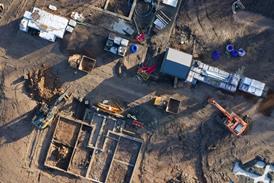- News
Regulations latest
All the latest updates on building safety reform
- Focus
- Comment
- Data
- Programmes
- CPD
- Events
- Jobs
- Subscribe
- Building Boardroom
Infrastructure update: the road to electric

The motor industry is gradually shifting to electric vehicles, but the rate of adoption is highly dependent on the rollout of charging infrastructure
01 / Introduction
Transitioning away from the internal combustion engine (ICE) is a key plank of climate change strategy. One-fifth of UK domestic CO2 emissions can be attributed to transport – the shift to electric vehicles (EV) aims to significantly reduce emissions. This week’s announcement by the Department for Transport of a consultation into requirements for mandatory EV charging points for new homes, offices and new street lamps highlights accelerating electric car transition.
Currently, the main focus for rollout in the UK is ultra-low-emission vehicles (ULEV), which require a charging infrastructure. While ULEV adoption is starting from a low base, it is accelerating – a total of 157,300 ULEVs were registered by Q1 2018, according to the DVLA – a 45% increase in registrations in 12 months.
However, there is a long way to go, as ULEVs represent only 0.4% of the total UK vehicle fleet. Creating mass adoption requires a large investment in supporting infrastructure as well as manufacturing capacity.
…
This is PREMIUM content, available to subscribers only
You are not currently logged in. Subscribers may LOGIN here.
SUBSCRIBE to access this story

SUBSCRIBE for UNLIMITED access to news and premium content
A subscription will provide access to the latest industry news, expert analysis & comment from industry leaders, data and research - including our popular annual league tables. You will receive:
- Print/digital issues delivered to your door/inbox
- Unlimited access to building.co.uk including our archive
- Print/digital supplements
- Newsletters - unlimited access to the stories behind the headlines
Subscribe now
Get access to premium content subscribe today



















